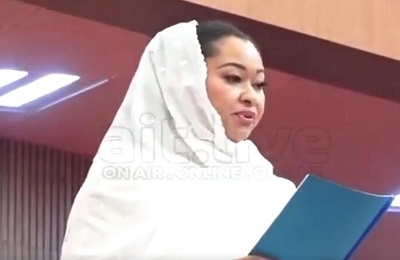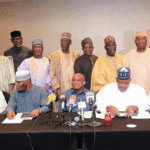Abuja – Federal High Court Justice Binta Nyako found Senator Natasha Akpoti-Uduaghan guilty of contempt Thursday for violating court orders through a Facebook post. The Kogi Central senator must pay N5 million and publish public apologies within seven days.
Court Ruling Details
Justice Nyako determined Akpoti-Uduaghan’s satirical Facebook post violated existing court orders restricting public commentary on her Senate suspension case. The court had previously barred all parties from making press statements or social media posts about the ongoing litigation.
“After reviewing the post and the application, she was satisfied that it was linked to the suspension matter before the court,” according to court records.
The senator faces multiple penalties:
- N5 million fine
- Apologies in two national newspapers
- Facebook apology post
- Seven-day compliance deadline
Background of Senate Suspension Case
Akpoti-Uduaghan filed suit challenging her suspension from the Nigerian Senate. Senate President Godswill Akpabio subsequently filed the contempt application after her Facebook activity.
The Kogi senator’s legal team argued her post addressed separate sexual harassment allegations against Akpabio, not the suspension proceedings. Justice Nyako rejected this defense, finding clear connections to the pending case.
Legal Precedent for Social Media Contempt
The ruling establishes precedent for social media violations of court orders in Nigeria. Legal experts note the decision extends judicial authority into digital communications for public officials.
Constitutional law analysts emphasize the importance of adhering to court restrictions, particularly for high-profile political figures involved in litigation.
Political and Legal Implications
The contempt conviction affects Senate dynamics as legislators face increased scrutiny over social media use during legal proceedings. Political observers note the case demonstrates no immunity from contempt charges based on elected status.
Civil society groups monitor the ruling’s impact on free speech versus judicial authority. The decision raises questions about restricting public discourse by elected officials during court cases.
Expert Analysis
Social media legal experts warn politicians need better understanding of digital communication risks during litigation. The case highlights growing intersection between traditional court authority and modern online platforms.
Constitutional scholars examine implications for legislative immunity and judicial oversight of elected officials’ public statements.
By Abdullah Korede








